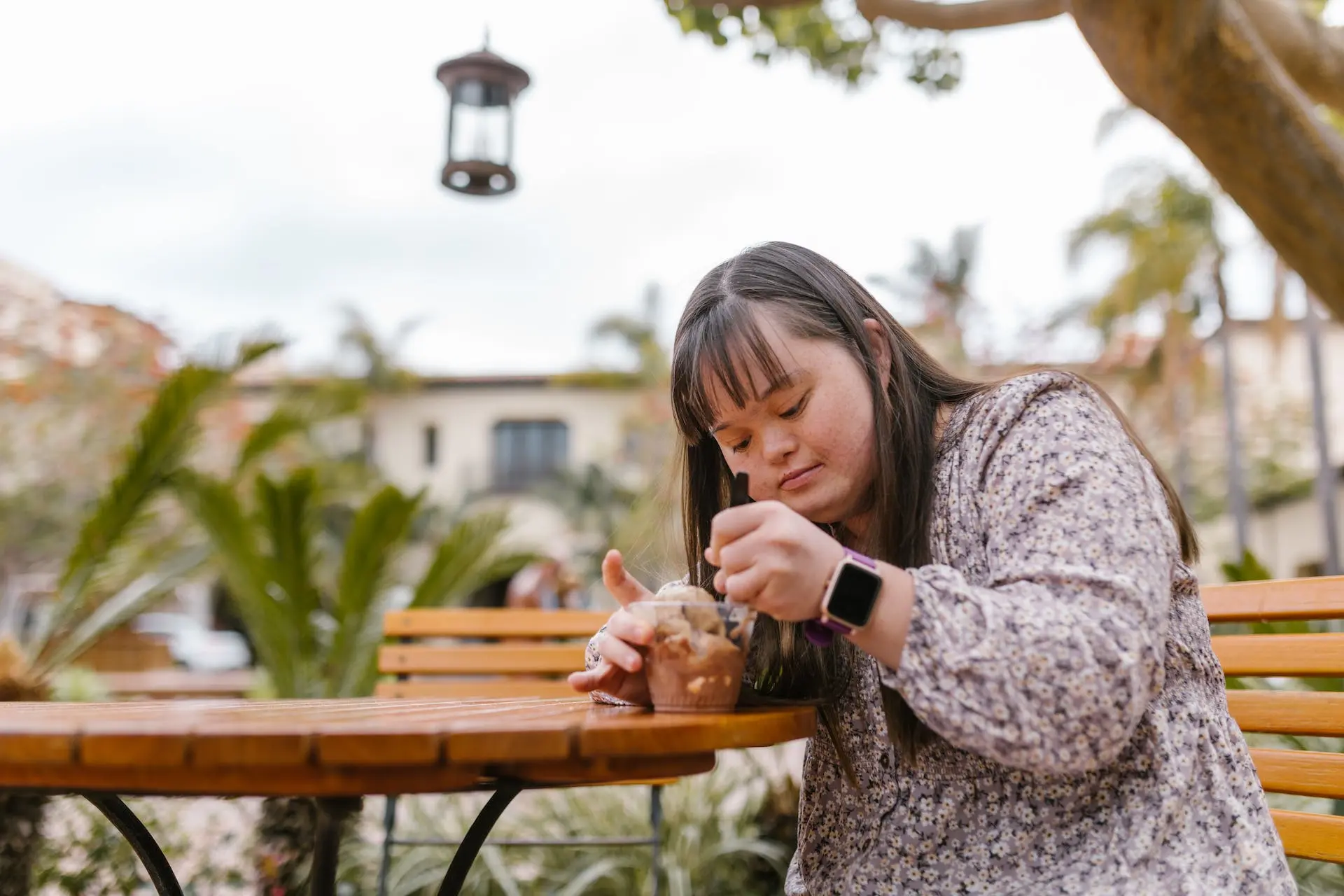ADHD and Relationships
Whether you are someone living with ADHD — or a partner of someone who has been diagnosed — you may notice how behavioural differences associated with the condition have affected your relationship.
Research even shows extramarital affairs, separation and divorce occur more frequently for those with ADHD than those without.
From difficulties with communication and time management to moments of intense passion and creativity, ADHD alters the way couples connect, resolve conflicts and nurture intimacy.
In this guide, clinical psychologist Dr Lisa Williams explores how ADHD influences relationships – exploring some common experiences and misconceptions and discussing practical strategies to create a more harmonious partnership.
What is ADHD?
Before we look at how ADHD can potentially impact romantic relationships, we need to understand exactly how the condition presents in people.
Attention Deficit Hyperactivity Disorder (ADHD) is a neurodevelopmental condition, which can affect both children and adults. It is characterised by persistent inattention and sporadic hyperactivity and/or impulsivity.
A clinical diagnosis is common once these traits start to significantly impact a person’s social, academic or occupational life.
ADHD typically presents in three ways:
- Predominantly Inattentive Presentation — Primarily symptoms of inattention.
- Predominantly Hyperactive-Impulsive Presentation — Mainly hyperactive and impulsive symptoms.
- Combined Presentation — A mix of inattentive and hyperactive-impulsive symptoms.
Relationships with a partner with ADHD
Being in a relationship with a partner who has been diagnosed with ADHD – or being in a relationship when you have ADHD — doesn’t just come with challenges.
It can be just as deep and fulfilling as a ‘typical’ relationship, so long as both partners communicate regularly and work together to overcome the potential differences.
Some of the common differences you might experience include:

Strengths and positives:
- Spontaneity and creativity: Partners with ADHD often bring energy and excitement into relationships.
- Intense focus during early stages: ADHD partners may exhibit ‘hyperfocus’, creating a deeply connected and exhilarating bond.
- Passion and enthusiasm: They may approach the relationship with a vibrant and engaging outlook.

Potential challenges:
- Forgetfulness: Important dates or commitments may be unintentionally overlooked.
- Distraction: Partners may seem inattentive during conversations, which can be misinterpreted as disinterest.
- Impulsivity: Unplanned actions or decisions could disrupt routines or cause stress.
- Emotional regulation: Intense emotional responses during conflicts can make disagreements more challenging.
- Difficulty with organisation: Shared responsibilities, like managing household tasks or finances, may require additional effort.

Differences from non-ADHD relationships:
- Predictability: Non-ADHD relationships may have more stable and predictable dynamics.
- Relationship pace: The hyperfocus stage can create an intense connection early on, which may later shift, requiring adjustment.
- Adaptability: Success in an ADHD relationship often depends on mutual understanding, open communication and tailored strategies to manage challenges.
How ADHD affects relationships
ADHD can affect how couples interact, communicate and show affection — it can be beautiful, but challenging if not worked through properly.
Some of the common ways an ADHD diagnosis might affect relationships include:
Distraction and inattentiveness
Individuals with ADHD often find it difficult to maintain sustained focus during conversations.
Their minds may wander, causing them to unintentionally ‘zone out’ — even during important discussions. This can make their partner feel unheard or undervalued.
Additionally, they might miss key dates, forget parts of the conversation or struggle to follow through on planned commitments, which can create misunderstandings or feelings of frustration.
Impulsivity and emotional reactivity
Impulsivity is a hallmark of ADHD and can manifest in relationships as speaking or acting without considering the consequences.
This impulsivity may lead to inappropriate comments, rash decisions or sudden emotional outbursts.
People with ADHD may also struggle with regulating emotions, making them more prone to quick displays of anger or frustration.
While these reactions are often unintentional, they can create tension or conflict in a relationship if not managed effectively.
Disorganisation and incompletion
ADHD can make it challenging to stay organised or complete tasks.
In relationships, this might mean one person starting a project or activity but leaving it unfinished because their attention has already shifted to something else.
This tendency can make partners feel burdened with picking up the slack or frustrated by a lack of follow-through. It may also lead to a chaotic home environment, which can add stress to the relationship.
Time management and forgetfulness
Time perception and management are common struggles for those with ADHD.
This can result in chronic lateness, missed deadlines or forgetting important social plans and errands.
Partners may then feel neglected or unimportant when special occasions or commitments are forgotten.
These patterns can also create logistical challenges in shared responsibilities, such as managing schedules or appointments.
Intense affection and overwhelming attention (love bombing)
People with ADHD often experience emotions intensely – especially in the early stages of a relationship.
They may fall deeply in love and shower their partner with admiration, gifts, compliments and attention.
While this intensity can feel thrilling at first, it may also feel overwhelming to the recipient, especially if it comes across as excessive or unsustainable.
Over time, this intensity might wane, which can leave the other person feeling confused or disappointed if they misinterpret the shift.
How to support someone with ADHD in a relationship
If your partner has ADHD, they may struggle to communicate their feelings to you or even come across as rude unintentionally.
So, you may need a slightly different approach when handling situations with a partner with ADHD.
Some of the ways you may be able to support your partner include:

Educate yourself about ADHD
It’s important to understand that ADHD affects attention, impulse control and emotional regulation. Symptoms can vary greatly, with some people being hyperactive and others more inattentive or a mix of both.
ADHD may lead to forgetfulness, impulsivity or difficulty following through on commitments — which can sometimes feel personal to the partner.
It can help to take a breath and remind yourself it’s a symptom of the condition, not a reflection of their feelings for you.

Practice open and non-judgmental communication
People with ADHD might miss subtle hints or non-verbal cues. So, it’s important to state your feelings and needs clearly and directly without expecting them to ‘read between the lines’.
Improving communication may mean making time for meaningful conversations where both partners can express themselves.
Avoid interrupting, even if your partner’s thoughts seem muddled or scattered. Equally, they need to give your feelings respect, too, so it’s important these conversations are free from judgement.

Support structure and organisation
Organisation, time-keeping and remembering planned events or commitments can be challenging for those with ADHD.
Some tools that can help with managing these symptoms – and avoid putting all of the responsibility on the other person – include:
- Creating shared tools — Use shared calendars, apps or visual reminders to help with organisation and scheduling. Tools like Google Calendar, or task management apps like Todoist, can prove intuitive and effective.
- Simplify routines — Break tasks into smaller steps. For example, instead of saying, “Clean the house”, suggest starting with one room or area.
- Understand challenges — If a partner with ADHD struggles to manage deadlines or keep track of tasks, avoid criticising. Instead, consider brainstorming strategies that work for them.

Manage emotional dynamics
People with ADHD often experience emotions intensely and may struggle with regulating them.
It’s important to understand emotional dysregulation and provide reassurance during moments when your partner is overwhelmed.
Staying calm during conflicts is crucial. If emotions escalate, take a step back and revisit the discussion once both of you feel more calm.
Also, celebrating your partner’s efforts and achievements — even if they seem small — fosters positivity and encourages growth.

Be flexible and patient
ADHD brains function a bit differently, so adjusting expectations is key.
Tasks that may appear simple to you could genuinely be challenging for your partner, so practising patience is essential.
Be prepared to adapt plans and handle last-minute changes – for example, finding a quick solution if they forget a dinner reservation – instead of assigning blame.
Recognising effort, even if the outcome isn’t perfect, helps build confidence and motivation.

Address conflict constructively
When frustrations arise, pause before reacting and consider whether your partner’s behaviour may be linked to their ADHD.
Responding with empathy instead of anger can make a significant difference. Use positive reinforcement by focusing on what they did well rather than what went wrong.
Approach issues as a team, focusing on problem-solving rather than blame. For example, instead of criticising them for forgetting to pay a bill, collaborate on setting up future reminders or prompts to avoid the situation re-occurring.

Encourage self-care and support
Supporting your partner’s well-being includes promoting professional help, in the form of therapy, coaching or ADHD support groups, which offer effective strategies for managing symptoms.
Creating a healthy environment with routines like regular exercise, balanced eating and sufficient sleep can also positively impact ADHD management.
While offering support, it’s also important to respect their autonomy and avoid ‘taking over’ their responsibilities entirely, as this could lead to feelings of inadequacy or dependence.

Take care of yourself
Maintaining your own wellbeing is essential when supporting a partner with ADHD.
Set boundaries and communicate your limits to ensure certain behaviours don’t negatively impact your own mental health.
Seek resources specifically designed for partners of people with ADHD — like books, forums or therapy — so, you can learn more about ADHD management and coping strategies.
Remember, you are a team. Your partner should be putting as much effort into managing their ADHD diagnosis as you are into supporting them.
One of the first steps towards managing a long-lasting and fulfilling relationship with a partner with ADHD is a clinical diagnosis. This allows those with the condition to access the support they need to thrive.
ADHD assessments should be completed only by clinicians with the necessary experience and expertise in ADHD. Typically, this will be a psychiatrist, psychologist or an advanced nurse practitioner.
The Autism Service offers Adult ADHD Assessments to the standard completed by the NHS, that looks at whether ADHD explains your presentation.
Frequently Asked Questions (FAQs)
ADHD love bombing refers to a pattern of behaviour in which someone with ADHD becomes intensely focused on a romantic partner during the early stages of a relationship.
This can present in overwhelming displays of affection, admiration and attention, such as frequent compliments, constant communication and grand gestures.
This behaviour is driven by the emotional intensity and hyperfocus often associated with ADHD.
While the recipient might find this thrilling, it can often prove unsustainable over time, as the initial intensity may naturally fade once the ‘newness’ wears off or other interests capture the person’s attention.
ADHD can influence intimacy in various ways — both positively and negatively.
The emotional intensity and creativity often associated with ADHD can make individuals passionate and engaging partners. However, challenges like impulsivity, distraction and difficulty regulating emotions can create barriers to deeper connection.
For example, zoning out during intimate moments or struggling to communicate effectively can make a partner feel unvalued.
Additionally, moments of emotional instability may lead to sudden conflicts that disrupt closeness. On the other hand, when managed well, these traits can also lead to a dynamic and deeply connected relationship.
Yes, people with ADHD may experience boredom in relationships, especially if the novelty and excitement fade over time.
ADHD brains are wired to seek stimulation — this can make routine and predictability feel unengaging. This restlessness might lead to a desire for new experiences or challenges, which can sometimes be misinterpreted as dissatisfaction with the relationship.
However, with open communication and intentional effort to keep the relationship engaging — like introducing shared adventures or new goals — boredom can be mitigated, allowing the relationship to thrive.